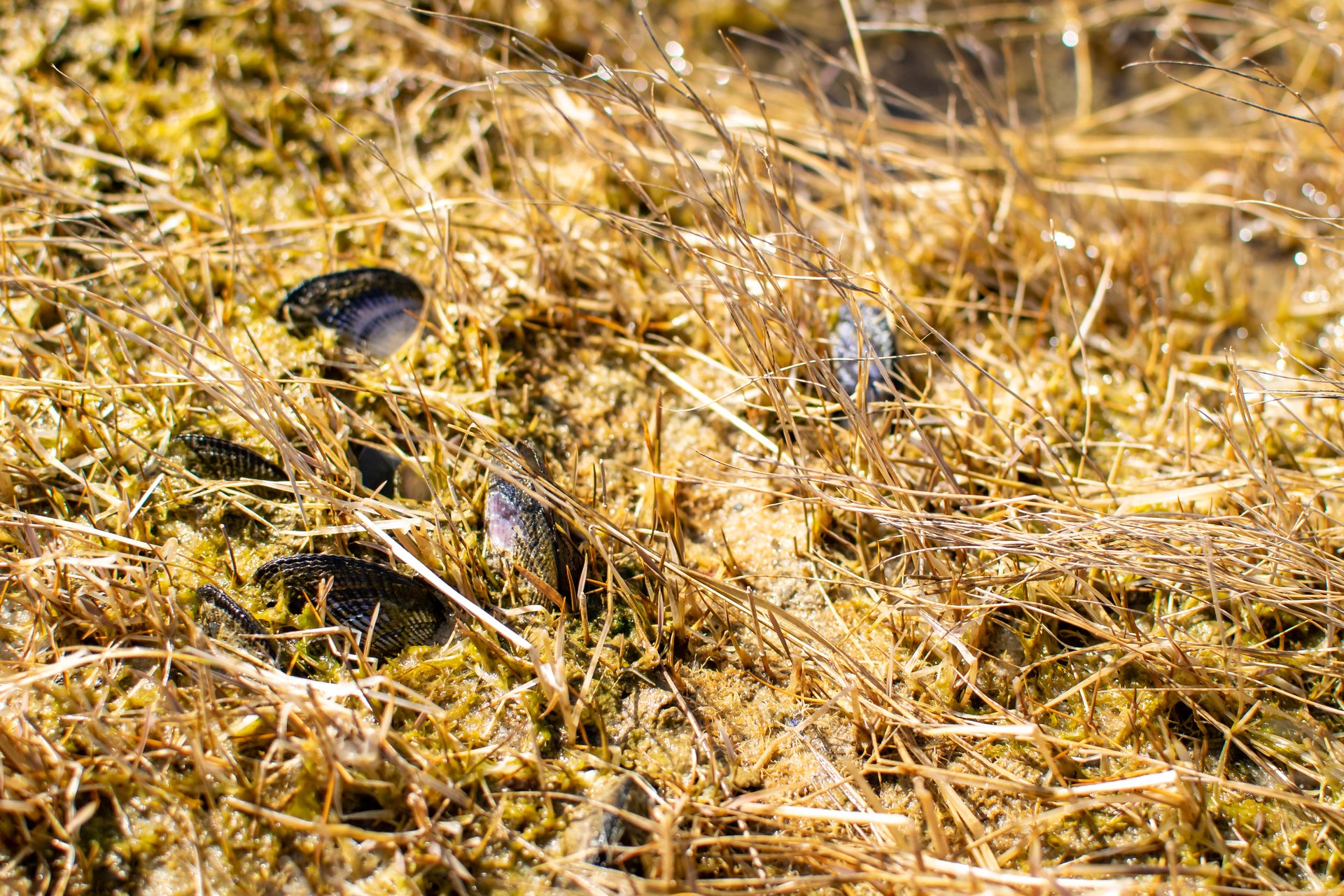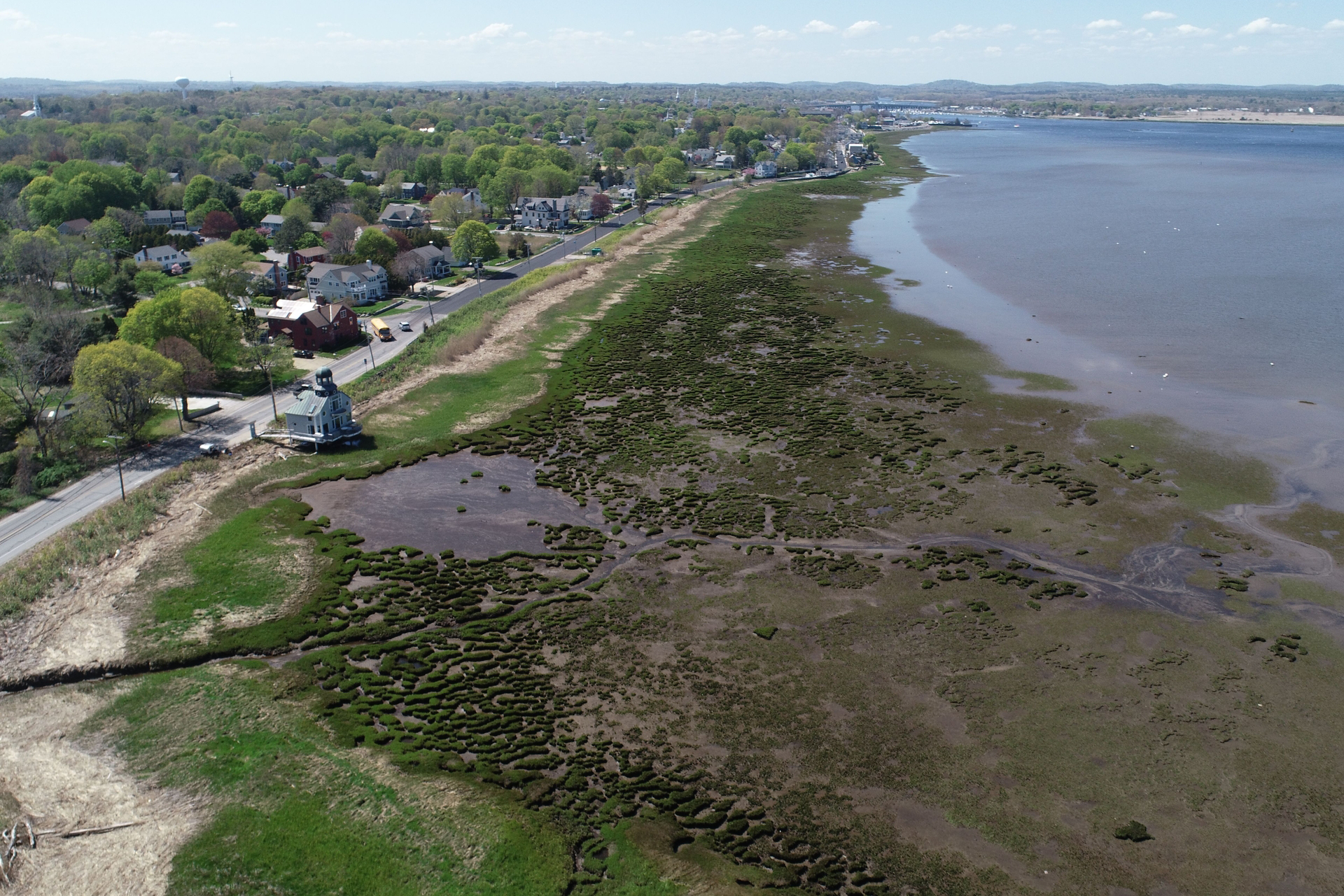Saving the Salt Marsh with Mussels?
November 22, 2022
Along the southern shore of the Merrimack River near Joppa Flats Education Center, over a mile stretch of salt marsh is struggling. While it’s uncertain exactly why this salt marsh is degrading, excessive nutrients from the Merrimack River and upstream wastewater treatment plants might be to blame.
When salt marsh cordgrass, Spartina alterniflora, is overloaded with nutrients, it develops more above-ground biomass and less below-ground biomass, leaving it unstable. Top-heavy and poorly rooted cordgrass can slump over when hit by waves, leading to bank collapse and erosion. This, combined with sea-level rise and increased storm activity, could speed up degradation and eventually lead to total habitat loss.
Protecting salt marshes in this area is vital as they absorb wave energy and reduce storm surges. This stretch of salt marsh is also a valuable habitat that houses more than 220 species of birds, including six rare species and three species with state wildlife action plans (SWAP).
Restoring with Ribbed Mussels
The ribbed mussel, Geukensia demissa, is the East Coast’s most common salt marsh bivalve and has been used in restoration projects for its ability to filter water, remove phytoplankton, transform nitrogen, and stabilize sediments with its byssal threads. However, surveys have not found any ribbed mussels in the salt marshes on the southern shore of the Merrimack River estuary. This might be from a lack of suitable substrate, poor water quality conditions, or ice scouring.
In October 2022, Mass Audubon relocated mussels from a nearby marsh to the salt marsh at Joppa Flats Education Center on the southern shore of the Merrimack River to test the feasibility of ribbed mussel restoration. Mussel survival and water quality will be monitored through the winter and spring of 2023. If they survive, Mass Audubon will start testing possible materials to grow mussels on and assess different ways to introduce them into the Merrimack River Estuary salt marsh.
Mass Audubon has received funding from the Palmer Foundation to collect data to evaluate the marsh and support the design of a salt marsh restoration approach. Results from the ongoing pilot study and future mussel experiments will be incorporated into the salt marsh restoration design process.
Moving the Action Agenda Forward
We are committed to fostering resilient landscapes across Massachusetts, as outlined in our Action Agenda. Learn more about how we are doing this on the coast via our Coastal Resilience Program and how you can support this important work.




